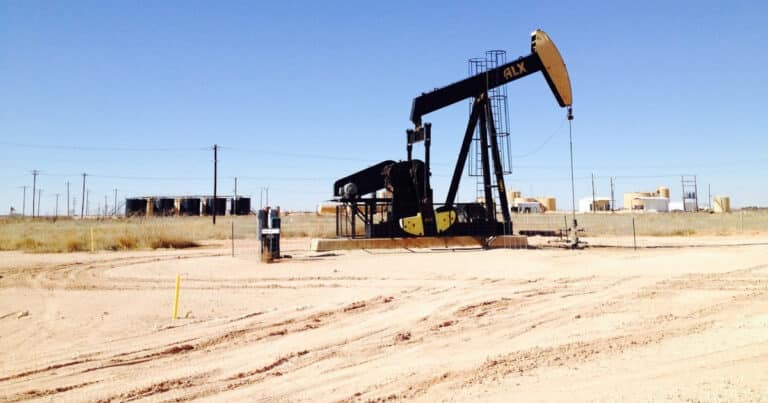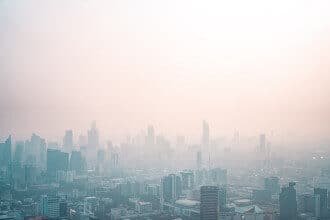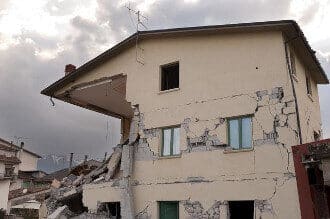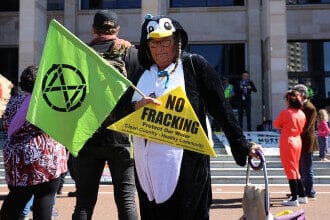By Harry Cooper – Hydraulic fracturing, otherwise known as fracking, has been a controversial topic in the US for some time now. While the implementation of fracking bolstered the US economy by allowing it to stop relying on foreign oil and grow its oil and gas industry, the environmental and public health consequences of widespread fracking have been tremendous.
Fracking involves drilling into the Earth’s surface in order to extract fossil fuels. This process has lead to an increase in water pollution, air pollution, and even earthquakes. Fracking has hurt the environment as well as many everyday people, making it another way that fossil fuels have caused the planet harm.
This has caused a widespread call for governments everywhere to ban oil and gas companies from fracking. By banning fracking, activists and environmental groups hope to create a safer, cleaner world, with one less means of environmental degradation.
What is Fracking?
Fracking was first invented in the 1860s but since then technological improvements such as horizontal drilling have caused it to explode in popularity. Throughout recent history many countries such as the US have relied heavily on foreign oil and gas production, but as fracking grew in use across the world many countries no longer needed to import their oil. This has even turned the US from an importer of oil to an exporter of oil.
The fracking process starts with shale rocks deep below the Earth’s surface that contain oil and natural gas. In order to access these deposits, fracking wells drill pipes down to the shale that then curve and drill horizontally through the rocks. The pipes then shoot out water at extremely high pressure into the shale fracturing the rocks, hence the name fracking. Once the rocks have been fractured the oil and natural gas can be easily extracted from the rocks.
Impacts of Fracking
Fracking is incredibly bad for the environment and human health. While fracking may have helped oil and gas industries, the impact they have had on the planet and human life is unacceptable.
Water Pollution
Fracking uses massive amounts of water for oil and gas extraction when they inject it into their wells. Not only does this fossil fuel production use lots of already scarce freshwater that would normally go to local communities, but it also creates enormous amounts of toxic wastewater.
While some of this wastewater gets reused in the fracking process, it is only a small fraction of the billions of gallons of wastewater generated by hydraulic fracking. Most of this wastewater ends up going to wastewater disposal sites in underground wells or is shipped off to be treated.
While this disposal method into wells works on paper, it is highly prone to leaking into groundwater and freshwater supplies. This can cause very harmful water pollution and soil contamination around these disposal well sites.
Air Pollution
Along with water pollution, oil production from fracking involves releasing many harmful contaminates into the air. This has caused severe air pollution around well sites that pose a serious health risk to people living in the area.
Some of these chemicals include benzene, toluene, particulate matter, ozone, smog and many other chemicals. Cancer, birth defects, and organ and nervous system damage can all be caused by exposure to these chemicals, but perhaps the most notable of chemicals released at well sites is methane.
Methane is one of the actual natural gases being mined for during fracking, but four percent of it mined at oil wells ends up escaping into the atmosphere as methane emissions. While this may not sound like a lot, methane is a potent greenhouse gas that is 25 time stronger than carbon emissions. It is estimated that the amount of methane leaked into the atmosphere at fracking rigs is equal to the greenhouse gas emissions from 1-3 million cars.
Earthquakes
Fracking has also been know to cause an increase in seismic activity and earthquakes. While these earthquakes are not caused directly by the fracking process, the disposal of fracking wastewater in underground wells has been know to increase pressure in underground rock layers which leads to an increasing amount of earthquakes.
This can especially be seen in Oklahoma which has had more wastewater disposal induced earthquakes than anywhere else in the US. Fracking activities have caused a massive increase in earthquakes across Oklahoma, and from 2014 to 2017 Oklahoma even had more earthquakes than California.
However, thanks to new fracking regulations in Oklahoma limiting wastewater injections in the fossil fuel industry, earthquakes in Oklahoma have decreased significantly. Oklahoma isn’t the only place pushing for tighter regulations around fracking, people everywhere are concerned about the environmental health risks of fracking and are pushing to further regulate and even ban fracking.
Banning Fracking
The impacts of fracking on human health and the environment are undeniable. Earthquakes, water pollution, air pollution, and climate change all related to fracking are harming communities and landscapes around fracking wells all over the world.
Many people across the world have called for their governments to institute a fracking ban. While it is ultimately up to federal and local governments, there are various international laws pertaining to human rights and the environment that suggest the banning of fracking.
Fracking Bans and International Law
One of the most prominent international environmental law policies against fracking is the precautionary principle. This principle has been mentioned in several international law documents such as the Rio Declaration on Environment and Development and the United Nations Framework Convention of Climate Change.
The principle states that countries should not implement any new technologies or products without first testing them to see if they are safe, in order to prevent potentially irreversible damage to health or the environment. Even though fracking is already known to be very harmful to the environment and human health, countries across the world still use it.
International law on human rights also presents a case in favor of banning fracking. Fracking puts many human rights in jeopardy such as access to clean water, health, and housing. According to international law, countries are required to protect these rights for their citizens and not compromise them through things such as fracking.
Successful Fracking Bans
Many countries continue to frack the Earth for fossil fuels, and many people are mobilizing to try stop them. While there is still a lot of work to be done to end fracking, there are a few countries in the world that have managed to successfully ban fracking.
Several European countries have started to fully ban fracking, starting with France in 2011, which was quickly followed by Bulgaria, Germany, and Scotland also banning fracking. Moratoriums on fracking in other countries such as the UK, Romania, Ireland, Denmark, South Africa, and the Czech Republic have also gone into affect. These moratoriums have placed a temporary ban on fracking until more information on the long term effects of fracking are discovered to help them make a more informed decision.
Many state and local governments in the US have also placed bans on fracking. New York state, Vermont, and various cities have implemented these bans. The devastating impacts of fracking are coming to light across the US and all over the world. Activist movements are getting the attention of governments and helping to end fracking through the means of creating policies and laws against it. However there is still a lot of work to be done to end fracking once and for all, and the time do something about it is now.
What Can You Do?
It may seem like a big task to stop the massive oil and gas industry from fracking the Earth, but there are many organizations dedicated to ending fracking, such as Food and Water Watch and Americans Against Fracking. These organizations work to support local, state, and federal movements and policies to ban fracking.
Getting involved in organizations like this is one of the ways ordinary people can stand up to big oil and gas companies from infringing on human rights through fracking and polluting our environment. While fracking is still widely used, the fight against fracking has come a long way and is still going strong thanks to everyday supporters and advocates of the movement to ban fracking.
Religion and Fracking
Ken Homan discusses in America magazine the spiritual implications of fracking. He describes the dangers of fracking and his fears of giving his children a polluted world. Homan refuses “to give a broken world to the next generation, a world in which we might one day hold up a photo of a beautiful dairy farm knowing the land it once rested upon is now littered with rusting rigs.”
Homan calls for us to protect the earth for the next generation, to “put effort, research and sacrifice into clean energy” for the greater glory of God. Fracking can give us short term gains like fuel and jobs, but we people of faith must look not just towards the gains of the moment, but towards the eternal goods. Clean air. Clean water. Clean land.
We inherited a beautiful world. Let’s give our children a beautiful world.
* Featured image source









